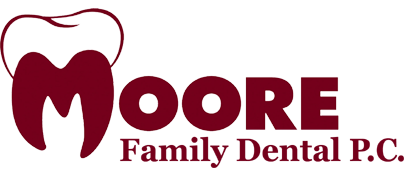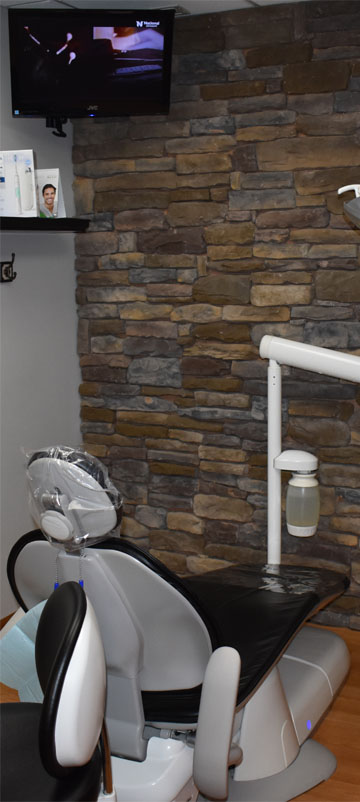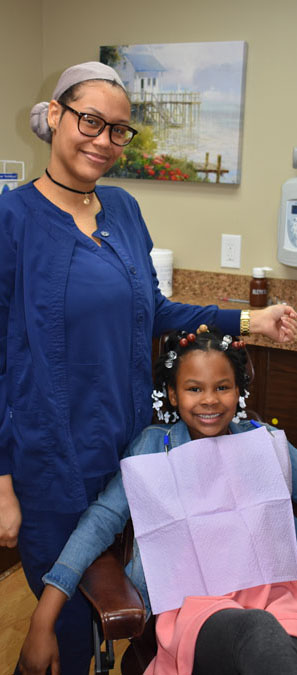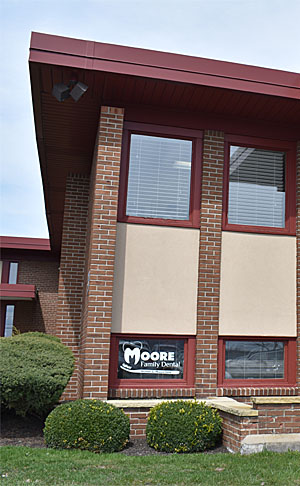If you are afraid of going to the dentist, you are not alone. Fear of dental visits is more common than you might think and it can affect people of all ages. For some, this fear is a result of a bad experience during a previous dental visit. For others, it is one aspect of an entire spectrum of fears related to doctors, clinical settings, or invasive procedures. Regardless of the reason for the fears, it is possible to overcome them. Your teeth and gums are worth it.
Talk it out
If you have anxiety about going to the dentist but your anxiety is mild enough that you can still make it through the door of the dentist’s office, talk with the dentist. You may find that the dentist has suggestions or ideas to help reduce your anxiety. If you can pinpoint your fears, share that with the dentist, as well. For example, if the sounds of drills or other paraphernalia associated with a dental visit make you anxious, the dentist might be able to provide you with headphones so you can listen to music to drown out the offending sounds. Similarly, if it makes you anxious to have too much activity around you during dental procedures, the dentist might suggest a quieter room with music playing in the background to soothe your fears. The most important thing is to be forthright about what is bothering you so the dentist can try to help you work through it.
Laughter, the best medicine
At Moore Family Dental, extra effort is made to ensure the comfort and satisfaction of each patient. Clients regularly bring in their favorite CD or MP3 players to listen to. With appropriately mounted TVs, patients can kick back and watch an episode of Seinfeld while having their teeth worked on. This truly creates a living room atmosphere and can help minimize dental phobia. Perhaps the only challenge becomes controlling laughter during a routine checkup.
Preventative maintenance and early detection
Why do people routinely change the oil in their vehicle and rotate their tires? Simple, they want to keep the vehicle operating at an optimal level and prevent major repairs in the future. The same principles hold true for our teeth and gums. One of the best ways to minimize dental fear and invasive dentistry is through preventative maintenance. The more dedicated we become to flossing and brushing, the better the odds that we will avoid major tooth decay and future dental work. Furthermore, if you wait a year or more between dentist visits, you are increasing the potential for invasive procedures. Six month checkups are optimal for early detection of oral issues.
Moore Family Dental also leverages cutting-edge technology, such as the Midwest Caries I.D. This handheld device enables clinicians to quickly and easily detect non-visible and early stage tooth decay (both interproximal and occlusal caries). It is safer and more accurate than traditional radiographs and explorers. The earlier a potential issue is spotted, typically the less invasive the required corrective treatment. Often times this means a pinhole cavity which does not require any anesthesia.
Take one step at a time
If you are fine during a regular office visit or a cleaning, but have difficulty with invasive procedures, talk to the dentist about this. It may be possible for the dentist to divide the procedure into stages for your comfort and peace of mind. This might be an option for you if it is easier for you to get through shorter visits than through an extended block of time.
Taking things in stages can be helpful in another way, as well. If your anxiety is such that you cannot picture yourself making it through an entire appointment, you should call the office staff, explain your predicament, and ask for their advice. If the dentist and staff are open to it, you could go in one day to fill out paperwork, meet the staff, and familiarize yourself with the office. The next visit could be a brief introduction to the dentist and a quick check of your teeth. This approach can be especially useful with children because it allows them to get acquainted with the office and staff in a non-threatening manner.
New technology is invaluable
If your fears are based on experiences you had at the dentist in years past, you might be surprised at today’s new technology and how it can help you. For example, if you have a fear of needles, you will appreciate the CompuDent Wand that Dr. Moore utilizes. It can completely change your experience because it does not look like a needle and it does not hurt like a needle. Only a person with a fear of needles can truly understand how revolutionary this is; if this is you, you owe it to yourself to ask Moore Family Dental for more information about the Wand.
Consider counseling
If your fears are severe, you might want to consider talking with a professional. In some cases, counseling is necessary to overcome fears like these. For example, if your fears are so severe that you cannot even bring yourself to schedule an appointment with the dentist, counseling could be the answer. Your teeth and gums are important and dental visits are crucial to keeping your teeth and gums healthy. Counseling could help you reach the point where you can experience an entire dental visit without any anxiety; that is a goal definitely worth pursuing.
If you’ve overcame a similar obstacle or phobia, please share your experience to help others learn from your progress.



